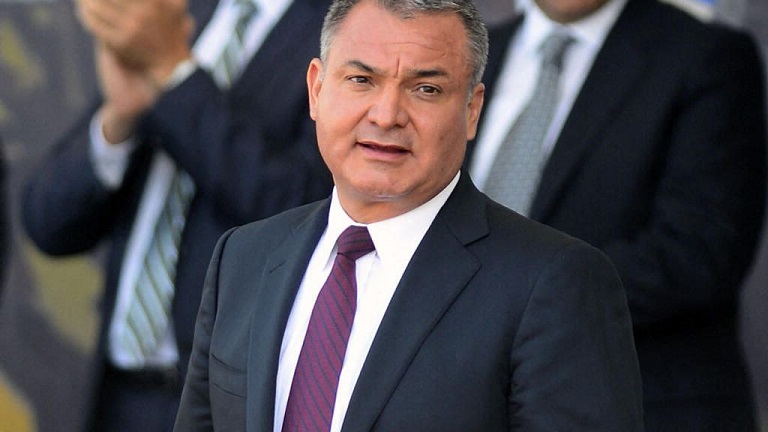Genaro Garcia Luna, once Mexico’s top anti-drug official, receives prison sentence for cartel collaboration.
Background on Genaro Garcia Luna
Genaro Garcia Luna, Mexico’s former security chief, played a key role in the country’s drug war. He served under former President Felipe Calderon during Mexico’s crackdown on drug trafficking from 2006 to 2012. Garcia Luna held a critical position in overseeing law enforcement and combating organized crime. At the time, he was one of Mexico’s most powerful figures in the fight against drug cartels.
However, behind the scenes, Garcia Luna had ties to the very cartels he was supposed to combat. He took millions of dollars in bribes from drug cartels, including the infamous Sinaloa Cartel. His role was not just passive; he actively aided the cartels, giving them government protection. Cartels paid him to ensure that law enforcement would turn a blind eye to their illegal activities. This allowed cartels to operate with impunity under his watch.

Criminal Activities and Charges
Garcia Luna’s corrupt activities came to light through testimony and evidence during his trial in the United States. Witnesses, including former cartel members, described how he worked as a “partner in crime” with the cartels. These cartels, including the Sinaloa Cartel, controlled vast parts of Mexico’s drug trade. Garcia Luna ensured they could operate freely without interference from law enforcement.
The U.S. charged him with multiple counts, including drug trafficking and organized crime. The court also heard details about his acceptance of millions in bribes. These funds fueled cartel violence and drug trafficking across Mexico and into the U.S.
The Verdict and Sentencing
On Wednesday, a U.S. federal judge sentenced Garcia Luna to over 38 years in prison. This sentence comes as a strong message against corruption within high-ranking officials. His actions, which once made him a symbol of Mexico’s drug war, now stand as a reminder of how corruption can erode a nation’s security efforts.
The U.S. prosecution highlighted Garcia Luna’s betrayal of public trust. He protected the very criminals he had sworn to fight, allowing the cartels to spread violence and drugs. His sentence reflects the gravity of his crimes, which contributed to the destabilization of Mexico during his tenure.
Impact on Mexico’s War on Drugs
Garcia Luna’s downfall marks a significant moment in Mexico’s ongoing battle against cartels. His sentencing demonstrates the deep-seated corruption that has hindered Mexico’s fight against organized crime. The case has further exposed how drug cartels can infiltrate government institutions and manipulate power for their benefit.
Garcia Luna’s conviction could have wider implications for Mexico’s law enforcement and anti-corruption efforts. His sentencing may encourage more efforts to purge corruption within the government. However, it also underscores the immense challenge Mexico faces in its war on drugs, with cartels continuing to wield power both inside and outside the country.
As Mexico continues its fight against cartels, the legacy of Garcia Luna serves as a stark reminder of the cost of corruption.




